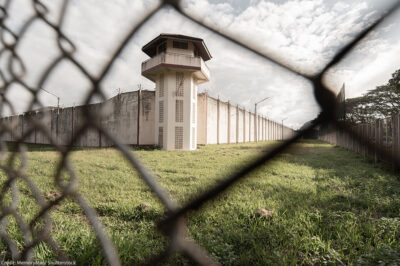Justice and Safety, Not Fear, Continue to Win at the Ballot Box


On Tuesday, voters in Allegheny County, Pennsylvania sent a resounding message: They want solutions to prevent crime in the first place, not just politicians stoking fear after it happens.
By an 11-point margin in the primary election, voters chose the reform candidate for district attorney, Matt Dugan, who offered an affirmative vision for safety and justice that starkly contrasted with the tough-on-crime approach of the defeated 24-year incumbent, Stephen Zappala.
Like so many of the district attorney contests across the country, the race between Zappala and Dugan came down to competing visions of public safety. Dugan pledged to focus on prevention rather than punishment and addressing the root causes of crime, like poverty and lack of opportunity. Allegheny County voters embraced his solutions-oriented focus, and rejected the failed punitive policies that were a hallmark of Zappala’s more than two decades in office.
The result should not be a surprise.
According to an ACLU-commissioned survey of likely Democratic primary voters in Allegheny County, when asked to choose between two candidates — one with a more preventative approach to crime and public safety and one with a more punitive approach — voters overwhelmingly choose prevention over punishment.
Allegheny County District Attorney Primary Poll Memo
Results from a recent survey show that voters want a District Attorney who will prioritize prevention over punishment.
Source: American Civil Liberties Union
73 percent of surveyed voters preferred a candidate who believes public safety requires prioritizing investments in schools, mental health and drug treatment, and affordable housing — rather than spending more money on jails and prisons.
Pennsylvania voters have shown repeatedly that they want elected officials who offer promising solutions on safety and crime prevention. In the 2021 election that was seen as a referendum on Philadelphia District Attorney Larry Krasner’s progressive policies to reduce mass incarceration, Krasner convincingly defeated his tough-on-crime opponent. And during the closely watched 2022 midterms, the Pennsylvania Senate race pitted Mehmet Oz’s law-and-order rhetoric against John Fetterman’s record as a reformer. Fetterman leaned into his record, and he won.
People Want Prevention, Not Scare Tactics, When it Comes to Crime
This trend is not unique to Pennsylvania: Candidates across the country who focus on prevention and addressing the root causes of crime continue to win at the ballot box.
In another closely watched election this year, the Chicago mayoral race, public safety featured prominently, and voters rejected the tough-on-crime candidate in favor of reformer Brandon Johnson. According to an election-eve survey commissioned by Vera Action and conducted by GQR, 95 percent of run off voters said crime in Chicago is a serious problem, but nearly 60 percent preferred solutions that prevent crime before it happens over more tough on crime measures. When asked what the next mayor should do to address crime and improve public safety, surveyed voters said the most effective solution is investing in more mental health and drug addiction programs (32 percent). Notably, much lower on the list of effective solutions was the hiring of more police (18 percent). As GQR noted, even though Chicagoans are concerned about safety, they also “embrac[ed] a nuanced view of the causes of crime and potential solutions.”
Politicians and their advisors should take note — tough on crime isn't just bad policy, it's bad politics. Scare tactics and fearmongering don’t do anything to make our communities safer. Voters want proven solutions that provide justice and safety, like investing in mental health and addiction services, community violence intervention, housing, health care, jobs, and schools. And they are electing candidates who offer solutions and hope, not fear and failure.




